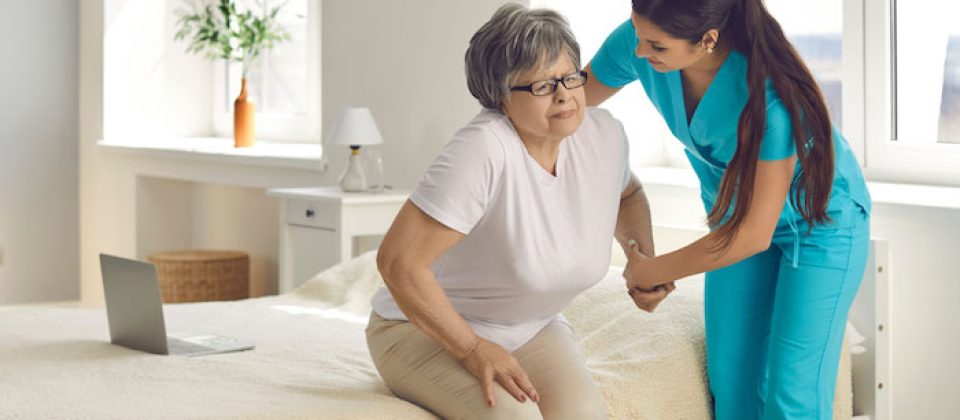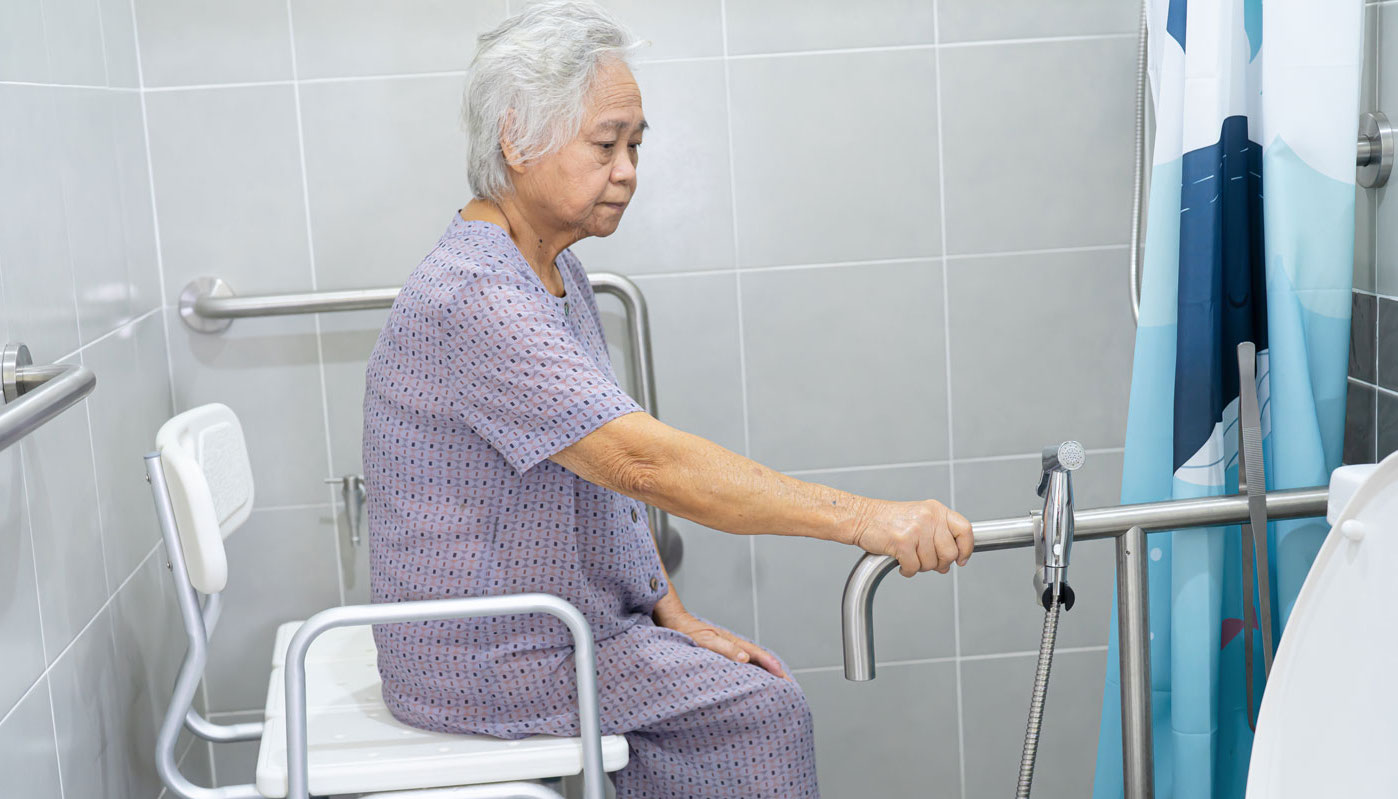

Hygiene – Alzheimer’s Care / Toileting
As Alzheimer’s disease (AD) progresses, incontinence may occur. This is caused by forgetting to go to the bathroom when one feels the urge to urinate or have a bowel movement, not knowing how to get to the bathroom, or not being able to recognize the bathroom itself, or ability to get there in time.
Incontinence usually begins in the late part of the middle stage of Alzheimer’s. It is a symptom of AD that caregivers fear they will not be able to handle. Many learn to take it in stride and find that it is not the “deal breaker” they expected it to be. Knowing how to use the proper products will help you with the discomfort you may feel.
Confusion about how to find the bathroom, inability to get there on time, or a urinary tract infection may be the cause of the problem. Ask the doctor if there could be a physical cause of the problem, rather than the progression of AD.

Reducing Incontinence Problems
A regular toileting schedule and reading the signals when the person needs to go to the toilet may help the person to continue to use the toilet for a longer time. However, you will probably need to use protection for the bed since the person may sleep through the need to go.
- Always be calm and understanding when accidents occur. Find ways to preserve dignity. For example, say, “Anyone can have an accident.” Don’t make the person feel guilty.
- Wear gloves. This prevents the spread of disease; wash hands before and after assistance.
- If the person cannot use the toilet and cannot learn to use a urinal, commode, or in-bed toileting, incontinence products will be necessary. If the person can move around on his own, do not encourage bed toileting.
- Watch for signs of urinary tract infection (blood in urine, cloudy urine with sediment, etc.).
- Because he may not recognize the need to use the toilet, “suggestions” to go to the bathroom can be very helpful—just a simple reminder after a meal, for example, or early in the morning, or before bedtime.
- If the person is in the early stage of AD, leave a bathroom light on at night so a person can find the bathroom easily. Keep the bathroom door open so the toilet is visible. Put a picture of a toilet on the bathroom door. Paint the bathroom door with a color in contrast to the wall.
- If it is in another room, make sure the “pathway” is marked. Marking a path can be done with something simple, such as reflecting tape. A person with middle-stage AD cannot toilet himself independently. Some caregivers will wake the person at night to take him to the bathroom, while others prefer to use incontinence products. You may need to try different incontinence products before you find the one that works best for the person in your care.
- If the person with AD fails to remember to wipe himself or wash his hands, you will have to prompt him to do it, help him to do it, or do it for him. Maintain good hygiene – wash the genitals at least once a day using unperfumed soap, and do not use talcum powder.
Using a Commode
A portable commode is helpful for a person with limited mobility. The portable commode (with the pail removed) can be used over the toilet seat and as a shower seat.
Using a Portable Commode
- Gather the portable commode, toilet tissue, a basin, a cup of water, a washcloth or paper towel, soap, and a towel.
- Wash your hands and put on gloves.
- Help the person onto the commode.
- Offer toilet tissue when the person is finished.
- Pour a cup of warm water on female genitalia.
- Pat the area dry with a paper towel.
- Remove the pail from under the seat, empty it, rinse it with clear water, and empty the water into the toilet.
- Remove your gloves and wash your hands.
- Offer a washcloth so the person can wash his or her hands.
Using the Bathroom Toilet
If the mobile person is missing the toilet, get a toilet seat in a color that is different from the floor color. This may help him see the toilet better. If the person with AD fails to remember to wipe himself or wash his hands, you will have to prompt him to do it, help him to do it, or do it for him.

Taking Care of Yourself- Healthy State of Mind
Strength training provides improvements in depression as anti-depressant medications. Currently, it is not known if this is because people feel better when they are stronger or if strength training produces a helpful biochemical change in the brain. It is most likely a combination of the two. When older adults participate in strength training programs, their self-confidence and self-esteem improve, which has a strong impact on their overall quality of life. As with depression, your sleep benefits obtained as a result of strength training are comparable to treatment with medication, but without the side effects or the expense.

Memory Care – The Morning Struggle
It is important to get a mobile person out of bed every day. Sometimes he or she simply will not want to get up. Do not hurt yourself trying to get him up when he doesn’t want to. Sometimes people are reluctant to get out of bed because it is a great effort, they fear hurting the person, helping them or fear falling. Try to understand why he is refusing.
Safety Tips – Fecal Incontinence
Fecal incontinence (FI) is an inability to control bowel movements, which may result in stool leaking. Although it can be embarrassing to discuss in detail, it is crucial to gather as much information as you can to help the person’s physician understand the situation. Injury to the nerves that sense stool in the rectum or those that control the anal sphincter can lead to FI. The nerve damage can be caused by childbirth, constant straining during bowel movements, spinal cord injury or stroke. Some diseases, such as diabetes and multiple sclerosis, also can affect these nerves and cause damage that leads to FI.
Keeping a diary of eating and drinking habits, symptoms, and digestive issues can help narrow down possible causes. The doctor may also perform some diagnostic tests, including a colonoscopy, to determine the underlying cause. For those who are caring for a person with FI, it can be difficult to know how to handle and help with the symptoms. For seniors and their caregivers, adequate planning can help decrease the likelihood of accidents and ensure you are prepared in the event one does occur.
Source: Caring for a Loved One with Fecal Incontinence; agingcare.com; MayoClinic